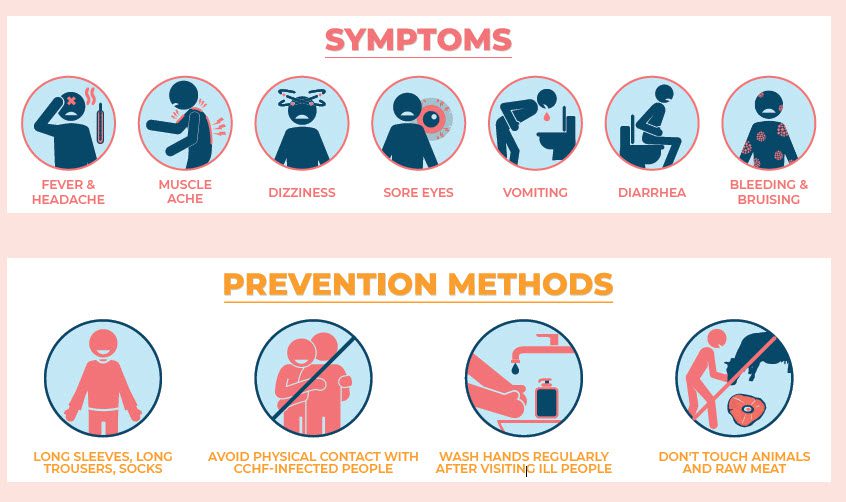In early June, the Rooted in Trust Internews team that monitors COVID-19 rumors in northern Iraq, noticed an uptick in online conversations that equated COVID-19 to a virus transmitted by a tick that lives on livestock. What people were saying is that both viruses are “fakes” or “hoaxes,” and an excuse to make people live in fear and control them. Conspiracy theories thrive on misinformation and uncertainty.
“Whenever the country faces a new disease/outbreak, people start spreading rumors and misinformation very quickly, and most of the rumors are usually associated with the COVID-19 vaccine. This rumor is one of the examples, among dozens of rumors, that links the COVID19 vaccine with Crimean-Congo hemorrhagic fever,” says Sara Sofiwan, Project Manager of the Rooted in Trust project in Iraq.

Mistrust towards public health authorities is not new, but the disregard for data is concerning. This is especially so when, according to the Iraqi Ministry of Health, this tick-borne virus also known as the Crimean-Congo hemorrhagic fever (CCHF) has already recorded 300 cases and over 60 deaths by the end of August (the numbers have been updated by the Internews Iraq team). CCHF is the most widespread tick-borne viral disease affecting humans, with a fatality rate up to 40%.
Crimean-Congo Hemorrhagic Fever or CCHF

CCHF is a zoonotic disease. This means it can jump from animals to humans. Usually, it is transmitted to people either by tick bites or through contact with infected animal blood or tissues, during and immediately after slaughter. Most cases recorded in Iraq this year, have occurred in people involved in the livestock industry, such as agricultural or slaughterhouse workers, and veterinarians.
Another equally important health concern in the Kurdistan region of Iraq in this third year of the Covid-19 pandemic has been a cholera outbreak that saw thousands of people being admitted into hospitals with acute cases of diarrhea, especially in the north-eastern province of Sulaymaniyah. “Cases have been reported in all provinces. Confirmed cases have exceeded 1,100, and include five deaths as of the end of August,” says Goran Khudhur, Program Coordinator for the Rooted in Trust project in Iraq.
A July report by the International Federation of Red Cross and Red Crescent Societies (IFRC), states that the cholera outbreak may be caused by vegetables irrigated with sewage water, an increasingly common practice due to the shortage of water in the Tigris and Euphrates rivers. Prolonged heat waves, erratic precipitation and higher than average temperatures caused by climate change are reducing access to safe water supplies. One solution that is being discussed by aid organizations in Iraq is to treat available water with chlorine tablets, but community perceptions of chlorinated water are negative and a barrier.
WATCH: Al-Jazeera’s news story on the cholera outbreak in Northern Iraq